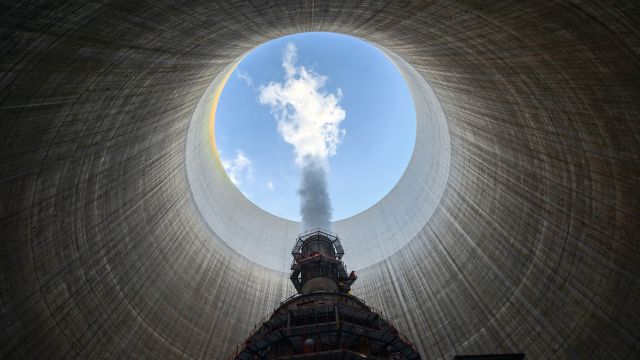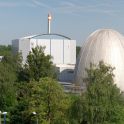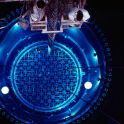
Reactor safety
The respective licence holder is responsible for the safety of the plant. State authorities supervise safety on an ongoing basis. Research institutions and technical safety organisations (TSOs) support the state supervisory bodies in their national and international tasks.
Our tasks
For more than 40 years, we have been researching nuclear safety, from neutron-physical phenomena occurring inside the fuel rod to the safety of the entire plant. Simulation codes for various processes in nuclear installations are just one output of our research. Currently, more than 170 institutes from 40 countries use computer codes that have been developed by us.
Being the German federal government's expert advisor, we give advice on nuclear safety issues and are the central expert organisation for the Federal Ministry for the Environment. National and international nuclear authorities and institutions draw on our know-how as experts. The findings we gain in our research in the field of reactor safety are included in our expert assessments. With our own Emergency Centre, we support the Radiological Situation Centre of the Federal Government. We also provide the INES officer for Germany.
Our competences comprise:
- the analysis of events and accidents in nuclear power plants and nuclear installations
- the formulation of recommendations for the further development of safety (information notices)
- the analysis of the operating behaviour of nuclear installations
- the development and validation of simulation codes
- the preparation of deterministic or probabilistic safety analyses (PSA)
- the further development of the nuclear rules and regulations
- the evaluation of new reactor design and concepts
Project highlights Reactor Safety

So-called Small Modular Reactors (SMR) or Micro Modular Reactors (MMR) are currently being considered for low-CO2 energy generation by many countries - including our direct neighbours in France, Poland and the Czech Republic. Due to its geographical proximity, Germany needs expertise in this area, on the one hand to clarify open safety issues and, on the other, to be able to analyse and evaluate these concepts independently - for example, if an event should occur in a plant close to the German border.

Research reactors differ considerably in design and use from commercial reactors in nuclear power plants. GRS researchers are looking at how these differences affect the safety of research reactors.

Researchers worldwide are working on small modular reactors (SMR) and microreactors (very small modular reactor, vSMR). Many of these new reactor concepts are being developed for specific applications and have special core geometries. In order to be able to simulate the neutron-physical behaviour of these cores, GRS is developing the simulation code FENNECS (Finite ElemeNt NEutroniCS).